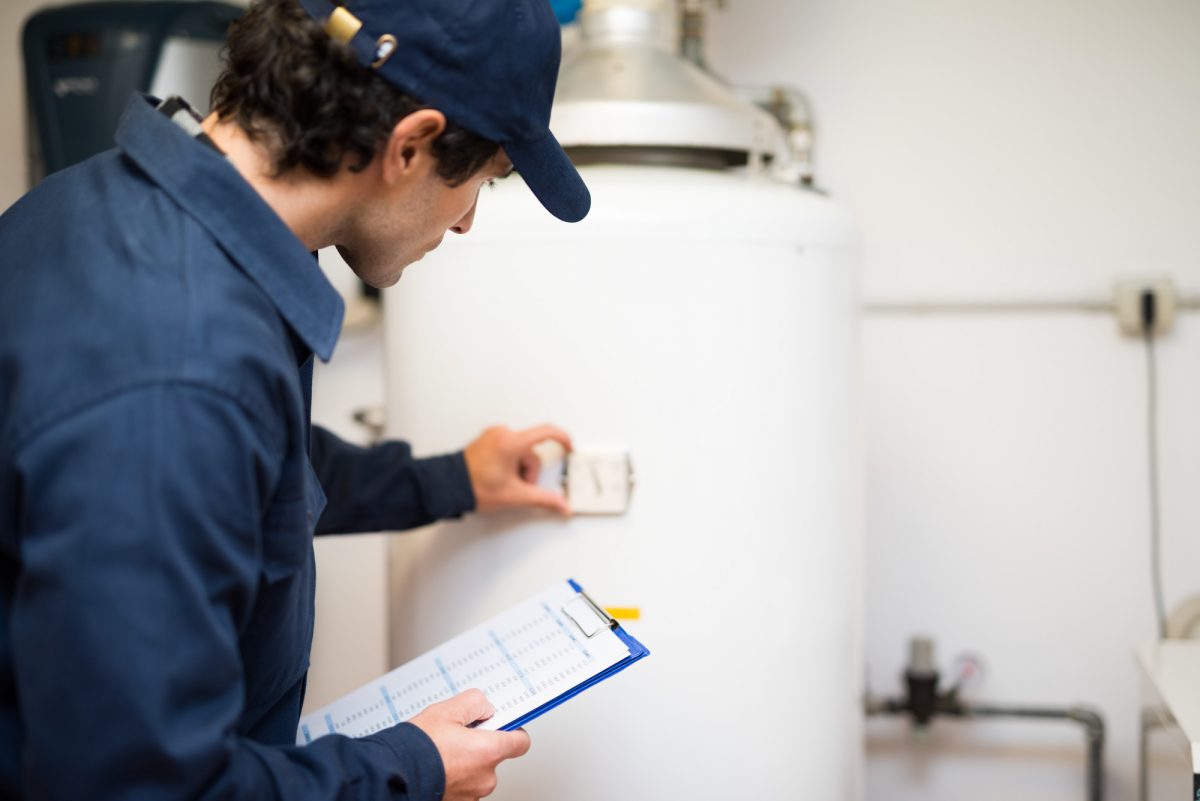
With more people at home more of the time your water heater is under extra strain. So don’t be surprised if yours starts showing its age, losing performance or breaking down. Making a repair-versus replace-decision isn’t always clear cut, but here are 5 signs that a replacement is likely your best choice. Plus a few situations where repairs might be the better option.
Did You Know? The typical household uses hot water about 20 times each day. And that’s as many as 20 cycles of the heater turning on and off.
#1 Water Heater’s Age
Except for premium models, today’s gas-fired water heaters usually last 8 to 12 years. Electric models 10 to 15 years. So if it’s past the warranty period and into these expected lifetimes a replacement is usually more economical in the long run.
Not sure how old yours is? The serial number will tell you. The first digits usually indicate the year and month. Often a letter is used for the month, ranging from ‘A’ for January through ‘L’ for December. To be sure, go to the manufacturer’s website and look it up.
Tip: If your hot water heater is past its warranty and located in a place likely to cause water damage if it leaks (such as an attic or upstairs laundry room) replacing it as soon as possible is a wise investment. So is having a plumber check it out every year or so.
#2 Rusty-Colored Water
Do you have off-color, perhaps rusty looking water coming out of your faucets? If that includes cold water then it’s corroded pipes. If it’s hot-water only there’s a couple of tests you can do.
- Run 15 to 20 gallons. Still a bit rusty? Then it’s likely there’s corrosion in the hot water tank.
- Drain a little bit directly from the tank using the valve and hose fitting at the bottom. Is it dirty or muddy? The tank is either corroded or has an excessive build-up of various types of deposits.
If the heater is relatively new you may be able to replace the anode rod that protects against corrosion. But a corroded tank is more likely to leak or even rupture. So a replacement is less risky and just might be more economical in the long run.
#3 Water Heater Leaks
Any plumbing leak can quickly lead to thousands of dollars in water damage. And small leaks can quickly become big leaks. So be wary of any such problems. If the leak is visible on some external fitting or valve the repair can likely take care of it. But if the tank itself is leaking (as suggested by discolored streaks or water in the pan with no apparent source) then there’s no other choice but installing a new heater.
#4 Noise
It’s common to hear a little ticking or clicking as the unit heats up and right after the burner shuts off. But louder noises deserve your attention. Rumbling or clunking sounds indicate large chunks of mineral deposits breaking off. At the very least that means lower performance and in turn higher hot water bills and less hot water. At worst, a unit that is well past its useful lifetime. So a replacement is a good idea.
#5 Not Enough Hot Water
Deposits and build-up may be leaving you without enough hot water, even if you don’t hear those noises, indicating the need for a new installation. Or you may have a new family member, someone working from home, or a new appliance. In that case, an upgrade to a larger model is in order. Or you could install an additional compact tankless heater.
But don’t jump to conclusions. It could just be that the thermostat accidentally got set lower. Alternatively, a gas burner may need adjustment or one of the two resistance elements in an electric heater may have burned out and could be replaced.
Bonus
If you see the energy use on your utility bills going up, especially a sudden unexplained jump, it’s time to check out that water heater since efficiency degrades over time or have problems that waste energy. A new installation can also take advantage of the latest energy-efficient technologies and products.
Tip: Hard water is hard on water heaters. So if you live in an area with hard water and you don’t have a water softener an annual drain and flush will extend its lifetime.

 951-375-9599
951-375-9599